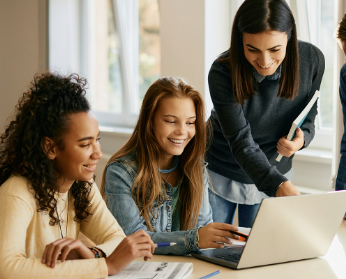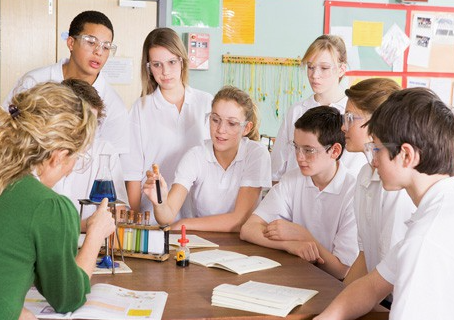In 2025, the connection between education and workforce readiness has never been more important. As industries evolve and career paths become more diverse, students need more than academic knowledge—they need adaptable skills, confidence, and a sense of ownership over their learning. Personalized learning equips students with these essential tools by tailoring their educational experiences to reflect individual goals, interests, and strengths.
Developing Skills for the Modern Workplace
Personalized learning helps students cultivate practical skills that align with current and future workforce demands. These include:
- Self-Management and Independence
Personalized learning encourages students to set goals, manage their time, and take responsibility for their progress. These habits closely mirror workplace expectations, where self-direction and accountability are key. - Problem-Solving and Critical Thinking
With flexible learning paths and real-world projects, students are encouraged to think deeply, ask questions, and seek creative solutions—skills valued in nearly every profession. - Collaboration and Communication
Many personalized learning environments include peer work, student-led discussions, and group projects. These experiences foster teamwork, adaptability, and clear communication. - Technology Literacy
Students often engage with digital platforms and tools in personalized learning. These interactions help build comfort with technology—an essential component of nearly every modern job. - Adaptability and Resilience
Personalized learning supports trial and error, reflection, and growth. Students learn to navigate challenges and adapt to new tasks, which prepares them for the dynamic nature of today’s job market.
Connecting Learning to Career Goals
Through interest-based projects, mentorship opportunities, and elective choices, students in personalized learning environments can explore potential career paths early on. For example:
- A student interested in environmental science might design a sustainability project.
- Another interested in design might create a digital portfolio or marketing plan.
These experiences help students connect classroom learning with real-world applications, increasing motivation and providing a clearer vision for the future.
Role of Educators and Schools
To support workforce readiness through personalized learning, schools can:
- Offer project-based learning that mirrors workplace challenges
- Provide opportunities for students to present and defend their work
- Partner with local organizations or professionals for mentorship and feedback
- Integrate career exploration into advisory programs and course planning
The Role of Instructional Coaches in Personalized Learning
Instructional coaches play a crucial role in helping schools implement and sustain effective personalized learning practices. They act as thought partners, skill builders, and support systems for educators navigating this shift. Their responsibilities often include:
- Collaborating with teachers to co-design personalized learning plans
- Modeling strategies and instructional approaches in classrooms
- Helping teachers interpret student data to guide individualized instruction
- Facilitating professional learning communities and workshops
- Supporting reflection and continuous improvement
By working closely with both leadership teams and classroom educators, instructional coaches help bridge the gap between vision and practice, ensuring that personalized learning is well-supported and consistently applied.
Steps to Launch a Personalized Learning Initiative
- Establish a Clear Vision
Define the purpose of the initiative, the outcomes you expect, and how it aligns with your school or district’s mission. - Engage Stakeholders Early
Involve teachers, students, families, and community members in the planning process. Their input will shape a stronger, more inclusive program. - Assess Readiness and Infrastructure
Review current practices, resources, and technology access. Determine what needs to be adapted or added to support implementation. - Develop Professional Learning Plans
Provide ongoing training for educators in personalized strategies, tools, and classroom management techniques that support student agency. - Pilot and Refine
Start with a small group of classrooms or grade levels. Collect feedback, make adjustments, and scale based on lessons learned. - Establish Support Systems
Create structures for coaching, collaboration, and resource sharing. Support teachers and students as they adapt to new roles and responsibilities. - Monitor Progress and Celebrate Growth
Use data and student reflections to assess progress. Highlight successes and make refinements to strengthen the program.
Looking Ahead
In a world where jobs and industries are rapidly evolving, personalized learning equips students with the skills and mindset to adapt and thrive. It shifts the focus from passive learning to active engagement, empowering students to take charge of their futures.
By bridging the gap between academic experiences and real-world demands, personalized learning helps prepare today’s students to become tomorrow’s leaders, innovators, and professionals—ready to succeed in any field they choose.














